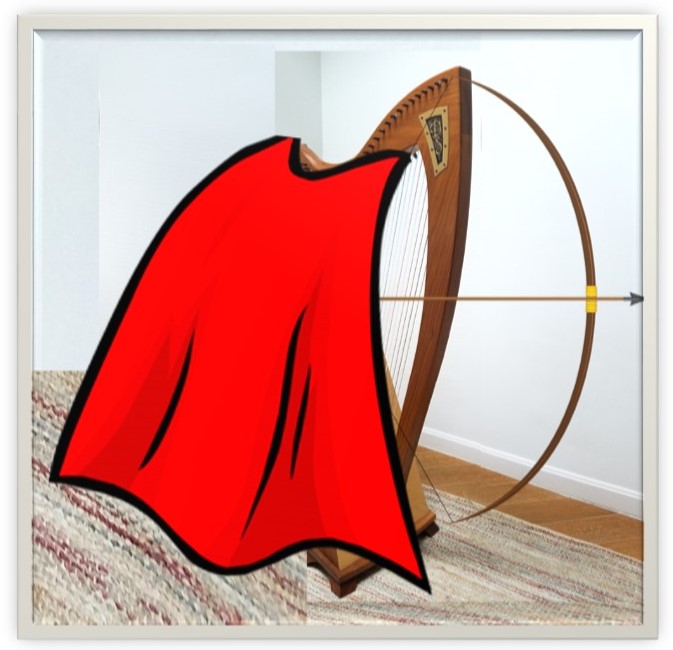There’s a reason you always need to check your fortune cookie, even if you don’t eat the cookie! There’s some potential wisdom in there. Alan Alda appeared in my fortune cookie the other day. Well, his well-known quote did. My cookie said, “Be brave enough to live creatively.”
Do you think that you are brave? Have you recognized your own bravery? It’s highly likely that at this point you are shaking your head, laughing, saying “I’m not brave!”
But – you are. Many of us began playing the harp as adults. Minus the devil-may-care approach of children, that may be the first sign of your innate bravery. The willingness to try new things requires a leap of faith – one most adults are not willing to take. So, you have already exhibited a great deal of bravery!
But, as Mr. Alda said, being brave is actually essential to making art – in our case that would be our playing, our being musicians, our being artists. And being brave continually is central to achieving everything you strive for with your harp.
 Being brave is a lot of things. Some things being brave is not (or does not require):
Being brave is a lot of things. Some things being brave is not (or does not require):
- Wearing a cape (of course you can, if it helps you, but it is not necessary)
- Being unafraid (bravery is not being unafraid, it is being afraid and taking action anyway)
- Not knowing what you’re getting into (rather, bravery stems from knowing the risks, but then schooling yourself and taking on those risks)
It’s this willingness to do something in the face of fear and uncertainty that demonstrates your bravery!
You’re still shaking your head, aren’t you.
You think I’m wrong. But still, you’re thinking you might look pretty sporty in that cape! (By the way, thinking about wearing that cape – fairly brave!).
What bravery is – is persisting in the face of ambiguity and uncertainty.
There is a lot of ambiguity in making music. Confronting that ambiguity is part of the art of making music. You address it every time you play. How will you render the tune? What will your interpretation be? Should you always bring the tune forth the same way, or can it vary based on a number of factors (possibly including how brave you’re feeling that day)? Are you technically capable of delivering the tune the way you imagine it?
And the uncertainty is rampant as well. Are you making the tune show it’s best self? Is your audience responding to your presentation? Have you done all the work?
Being brave takes practice. The more you do it, the easier it gets. This is something you already know how to do – make a plan, keep notes of your progress, figure out your best system for success – and just keep at it! Playing the harp is unlikely to be the hardest thing you ever have to do in your life – and practicing being brave at the harp will probably help you be ready for the really hard stuff!
As noted above – there is plenty of opportunity to be brave. So, embrace it. Acknowledging that bravery is required is probably the first step in being your bravest self. And who knows, you might even enjoy being brave enough to be creative!